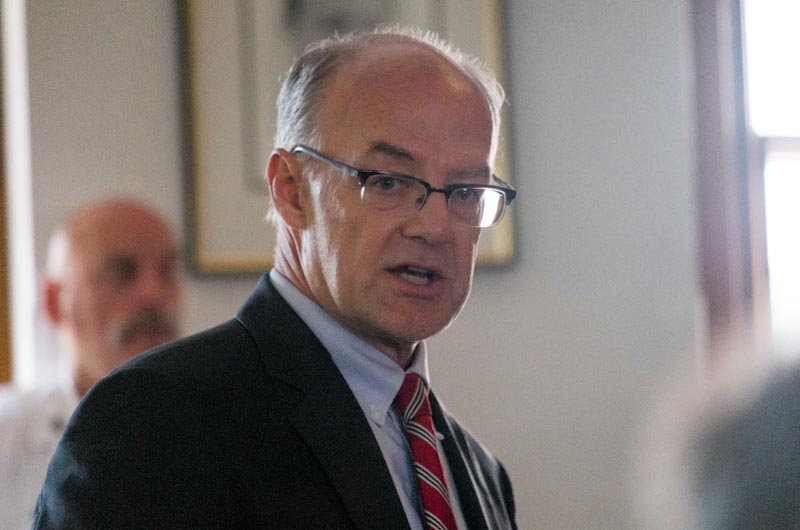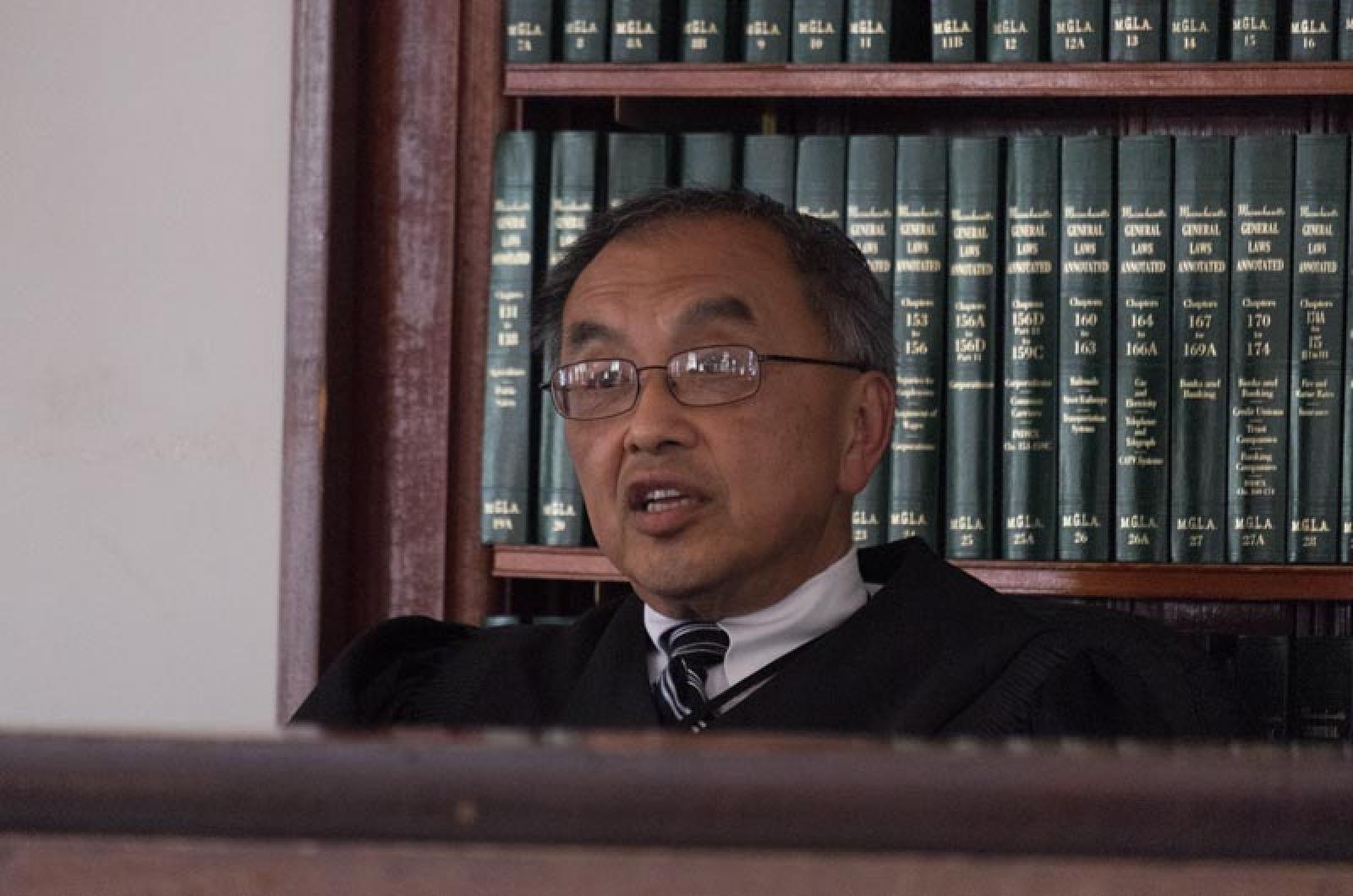A superior court judge heard arguments Tuesday afternoon on both sides of a dispute between the Martha’s Vineyard Airport Commission and its appointing authority, the County of Dukes County.
Held in the Edgartown courthouse during a special sitting of the court, the hearing saw spirited debate about the legal independence of the airport, and also whether the dispute belonged in court in the first place.
In May, the airport filed a complaint seeking to prevent the county from exerting certain controls over airport affairs, detailing four counts for declaratory and injunctive relief.
At the close of Tuesday’s hearing, the Hon. Richard Chin, an associate justice of the superior court, said he would take the matter under advisement and issue a written opinion.
The debate centers around the question of which agency has ultimate authority over the airport.

Airport counsel David Mackey argued that the county is attempting to exert extreme controls over the airport, citing efforts to install the county manager as an ex-officio member on the airport commission, refusals of the county treasurer to pay the airport’s legal bills and efforts by the treasurer to obtain itemized legal bills directly from airport counsel.
In his preparation, Mr. Chin said he had read up on the last jurisdictional dispute between the two bodies. A case brought by former airport manager William Weibrecht that was decided in 2006 confirmed the airport’s authority to set the salaries and contracts of its employees.
In the latest lawsuit, the airport seeks expanded recognition of its autonomy from Dukes County. On the motion for a preliminary injunction Mr. Mackey said the matter is urgent because it is important to settle confusions about “who is running the show.”
Further, he warned that a decision in the county’s favor would repudiate grant assurances governing the receipt of public grant funds, potentially rendering the airport ineligible to future funding and responsible for repaying previous funding. The airport attorney estimated the potential liability at some $40 million.
“The airport cannot be in a position where the county is wielding control over it,” Mr. Mackey said.
But Judge Chin said he saw no immediate threat to the airport’s sovereignty.
“They have not shown up at the airport trying to take it over,” he said.
He also questioned whether it is appropriate for the court to get involved in the matter, suggesting instead that the lawyers should be the ones protecting the attorney-client privilege.
“I think the onus is on the lawyers to say, I’m not giving it to you,” the judge said, referring to the dispute over whether the county had the right to obtain itemized legal bills involving the airport.
But Mr. Mackey said the person seeking the invoices had shown a “complete lack of clarity” in requests to the law offices. He conceded that the airport is subject to the state public records law, but argued that the airport commission gets to decide what to release.
Mr. Chin said his concern was that the court not get involved in a public records ruling, especially in the context of attorney-client communications.

Representing the county, attorney Robert Troy challenged the need for court intervention. He said the dispute is a political controversy, not a legal one.
“Ultimately, the county commissioners are in control,” he said, because they appoint the members of the airport commission. He added that the county respects the authority of the airport over aeronautic aspects of the airport.
Further, he said the county supports the judge’s decision in the Weibrecht case in assigning control over airport employee salary and contracts to the airport, but he said that control is not broadly drawn.
One trigger for the current complaint was a vote in April by the county commission to recognize the ex-officio, non-voting membership on the airport commission by county manager Martina Thornton. Ms. Thornton had reportedly had been denied entrance to parts of meetings held in executive session.
Mr. Troy told Judge Chin that the county manager is already a member of the board, since according to Massachusetts General Laws and the county administrative code, the county manager serves as ex-officio member on any board that the county appoints.
He said the manager’s participation on the board would not constitute a reorganization of the board, as it is already on the books.
In rebuttal, Mr. Mackey said adding an eighth person to a seven-member board constituted a reorganization. The state airport act, he said, establishes a board with an odd number of members.
“I don’t know how to reconcile the number eight with the word odd,” he said.
On the subject of the legal bills, Mr. Troy said the state public records law already requires the airport to provide itemization of the bills or to provide an exemption if they are not releasing them to the public.
“The airport should have been in communication with the treasurer and not coming to court,” he said. “To enjoin the county treasurer is to bury the terms of the statute.”
The judge said he saw no present controversy with the legal bills.
“The bills have been paid,” he said. “What would I rule on?”
In the end Judge Chin said he would review what is in the record and issue a written decision.







Comments (2)
Comments
Comment policy »